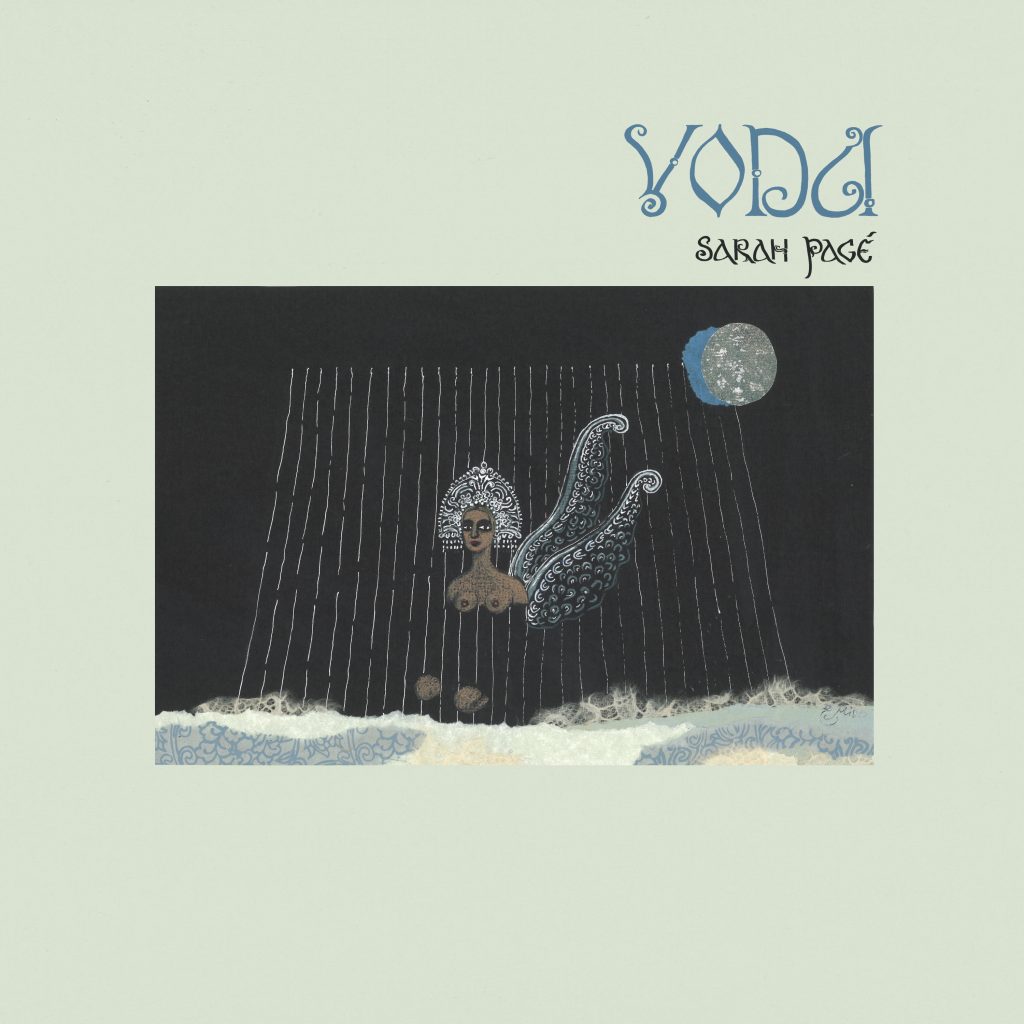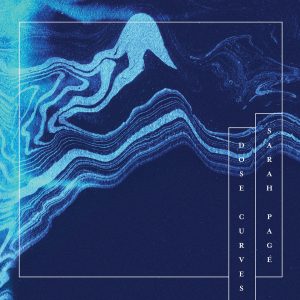Across the album’s five tracks, Pagé unfurls untold possibilities from within the 5000-year-old instrument: moving through free-form tonal caverns, catching gently-bent melodic breezes and expanding out to the ambient aethers. Dose Curves is a world in a spin of its own, intricately detailed and paced serenely. Described by its maker as a ‘tribute to the many moods and colours of the harp’, the album moves with a learned fluidity. Employing a myriad of techniques and tools to accentuate the harp ( a bass pick-up of her own design and an array of carefully considered amps, fans, bows and pedals) Pagé capitalizes on both the very physical and altogether mystical tones inherent in the instrument.
The mere range of sounds Pagé is able to pull out of the harp while remaining tethered to its essence is astounding. Though what really makes the record so spellbinding is its rootedness in performativity. Dose Curves arrives in album format after eight years of intensive practice, playing, touring, collaborating and recording. During this period (which included her regular duties with The Barr Brothers, close collaborations with the late Mexican-American mysterion Lhasa, and appearances on recordings by Leif Vollebekk, Patrick Watson, Jerusalem In My Heart, Nadah El Shazly, among many others), Pagé would test these solo works on live audiences as opportunity permitted. Across many explorations, versions, dialogues and fine-tunings, the pieces materialize here as vibrant as ever. Rather than presenting as a deadened product of a disconnected process, the tracks on Dose Curves are wildly alive, charged with organic iteration and intent. The entire LP consists of one unaltered performance, presenting the full range of the artist and instrument, imbuing the album with a visceral vitality.
It takes an incredible amount of discipline, dedication and curiosity to manifest such a unique and unified collection of music. That such a collection feel so immediate and welcoming speaks to the artistry of Sarah Pagé: fearless, tender and ever-changing.
- ARTIST: Sarah Pagé
- TITLE: Voda
- CAT#: BKWRD032
- FORMAT: Digital
- RELEASE DATE: June 02, 2023
The latest album from Montréal’s exploratory harpist Sarah Pagé is a dynamic journey that drifts the listener through tangled knots and flowing eddies. Comprising nine long-form movements, Voda gathers, grows and throws off tensions, revealing murky depths and phenomenal tenderness. Where her last album, Dose Curves, was rooted firmly in the harp, Voda’s scope is much wider: instruments populating the pieces include bass, cello, violin, koto, electronics, oak branches, water bowls and waterphone.<br /> <br /> The genesis of the pieces included on Voda (a Russian word meaning ‘water’) date back to 2014 when Pagé was invited to collaborate on a contemporary dance piece by Russian/Ukranian choreographer Nika Stein. In Voda-Eau-Water, Stein and company explore themes of mortality and vitality as they are typified by humankind’s relationship to water. These conjoined realities are told through symbols drawn from Russian myth and poetry: a peasant woman washing her clothes in a river, an immortal water nymph encountering the concept of death; a dripping wet cave, a spa, a swamp, the abyss. Developing and mounting the piece was an incredibly fruitful experience for Pagé, and so the pandemic found her revisiting the work. <br /> <br /> Over the course of a calendar year, Pagé dissected, experimented, scored and expanded the original pieces that accompanied the performance. Working in collaboration with a trusted circle of players and technicians at her home studio outside Morin-Heights (including Stein who contributes the album's lone vocals), bits of myth and bodies of water were transmuted into sound, creating a standalone album of great breadth and intensity. Following instincts that both harkened back to and pushed beyond the original material, Pagé employed an array of techniques to go deeper into the concepts of the work. For instance, several of the bed tracks were processed through a large piece of sheet metal that was mic’d and dipped in and out of a basin of water. And that intensive process created but one subtle colour amidst the vivid soundworld that is Voda. <br /> <br /> A central text that inspired the album (and the dance piece that preceded it) is a poem by 19th century Russian poet Mikhail Lermontov entitled ‘The Mermaid’. The English translation by Vladimir Nabokov includes a line that seems to capture the power and dynamism of the music of Voda: “Both making noise and whirling, the river rocked / the clouds reflected in her”.
“graceful” – New Sounds, WNYC
“gripping and enveloping” – Cast the Dice
“a rich, expansive sound universe” – PAN M 360
“full of mystic beauty and gentle, fluttering melodies” – Bandcamp
“a hushed, quietly-unfolding mystery” – The Autumn Roses
“Her ability to portray beauty and danger in turn and at times together is extraordinary.” – A Closer Listen
“a dynamic journey that drifts the listener through tangled knots and flowing eddies” – The Attic Mag

